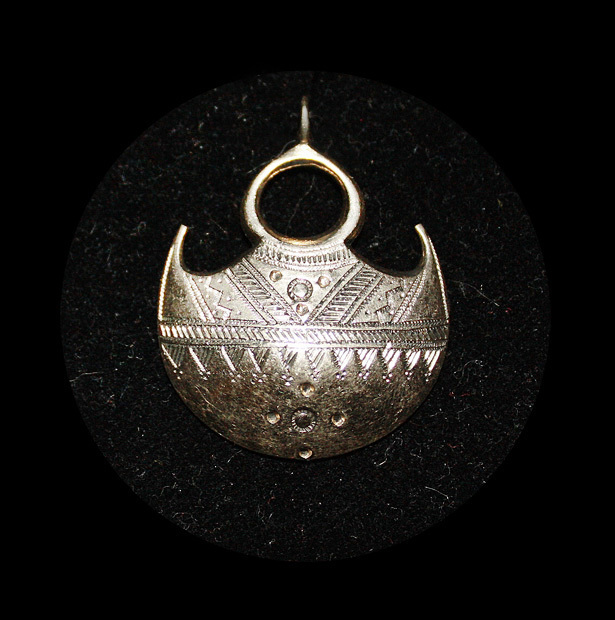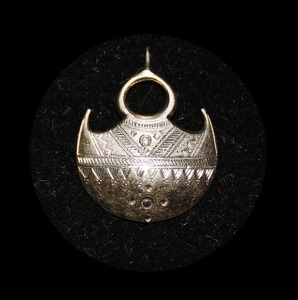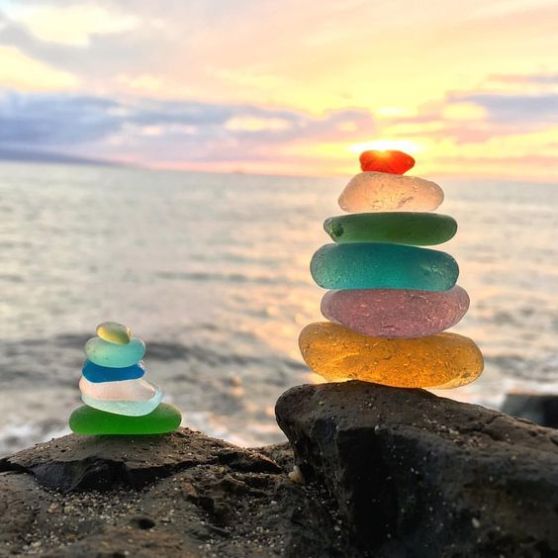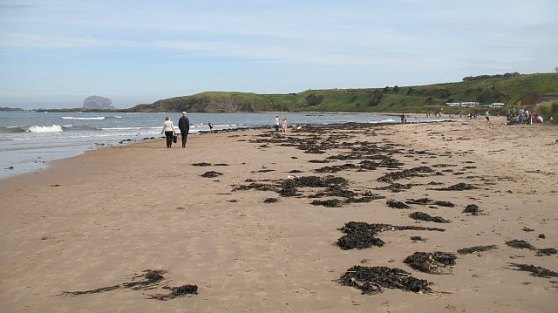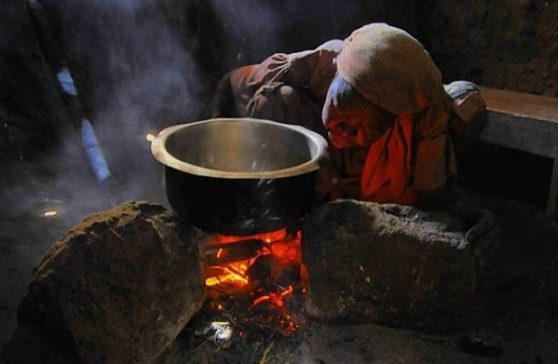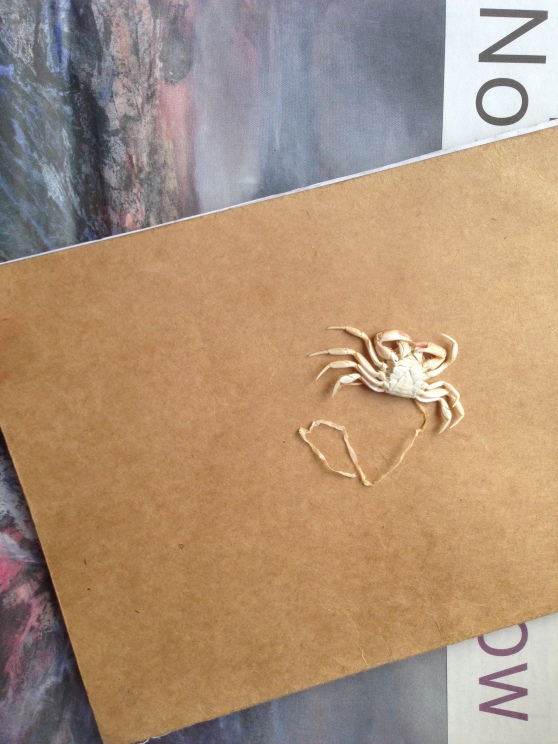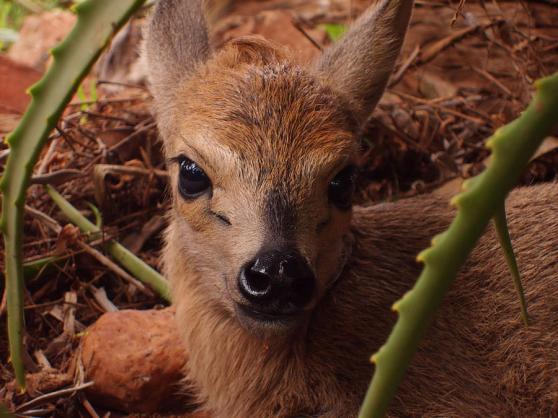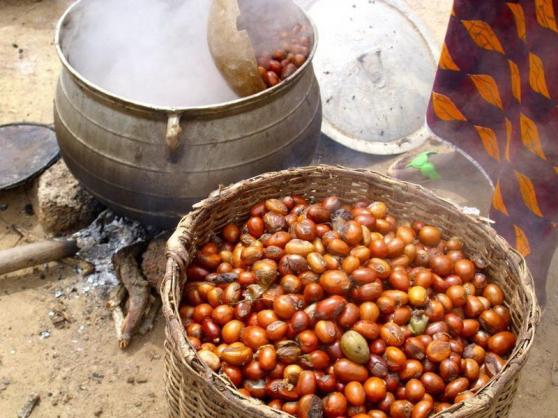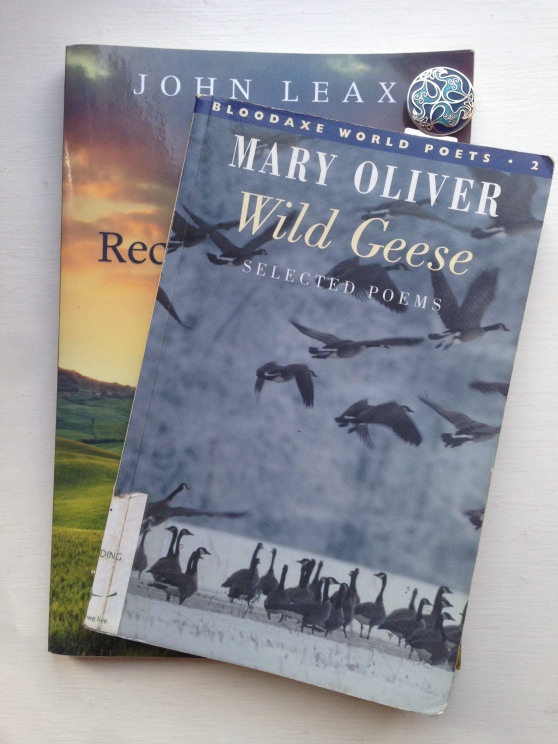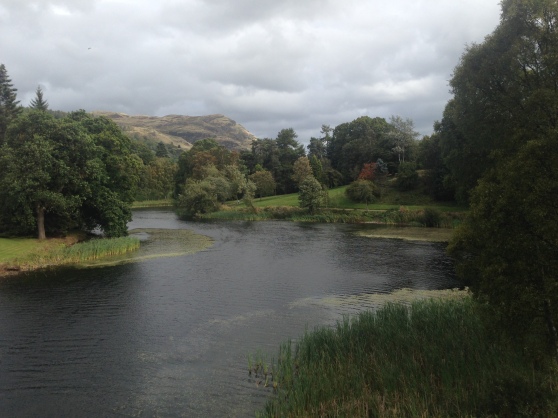The other day, we popped into Ten Thousand Villages. Out of the corner of my eye, I saw a necklace, and I immediately knew where it was made: Niger. TTV is carrying a number of Nigerien pieces at the moment, it turns out.
I went again yesterday and I looked at them all for a long time. Haunting, the designs, most of them engraved silver. So expensive as well. $175 for a necklace. $75 for a pair of earrings. It is strange to think how much less these would cost back home. How I used to own a necklace like these and lost track of it, because it was commonplace.
How little I prized or learned of Nigerien culture, when I lived in Niamey, Niger, for four years. I took Hausa lessons for four months and don’t remember a single word. I don’t have a Nigerien friend. And I didn’t when I lived there.
It was a good boarding school, Sahel Academy, where I attended those years in Niger, but I deeply regret its insulated world. I still grieve those four years—the Lost Years—how preparation for re-entry into the West swallowed up a precious opportunity.
I regret them so much that when I took my husband to see where I grew up, I refused to spend any time in Niger. “I want to be in Benin every single day I can,” I said. But, as true as that was, I was ashamed for him to see what my life in Niger had not been.
Staring at these necklaces and earrings, evocative of a landscape of dune and the grace of stars, the tradeoffs of a life abroad sit inside me like a meal of pounded yam.
There is nothing so heavy in the gut as sokoru.
…
This is what took me to Niger: education, and preparation for re-entry into North America.
There is no quality high school in English in Benin (where I had lived since age five). But in Niamey, a seven-hour, pot-hole-ridden trek north of my home, stood Sahel Academy, an international school, and it offered long-term boarding.
There was no question in my mind about homeschooling instead. I adored learning in a classroom. And Sahel Academy was American. Well, it tried to be international (it offered testing for the International General Certificate of Secondary Education—”IGCSE”s—through Cambridge University), but culturally, it was predominantly American. Americans just made up a disproportionately high percentage of expatriate workers in Niger. So much so that the lingua franca in expat circles was English, unlike in Benin, where we used French. (Lots more Europeans in Benin.)
I absolutely did not look forward to this culture change. But I knew how essential it was that I prepare for The Departure. When I left West Africa on finishing high school, it would be to study in Canada (my mother’s homeland) or America (one of my dad’s homelands). I had known this before I even knew what a university was.
The Departure beat down on my back every day, a burning sun, baking my resolve, hardening my natural enthusiasm for living. Oral histories—laments over derailed re-patriated “Third Culture Kids”—swirled in my consciousness. I would not derail. I would conquer.
Bring on Sahel Academy.
Bring on walled compounds and air-conditioned vans sliding through the humanity of Niamey streets to their own tinny Christian pop culture tunes. Bring on weekends watching softball games in the exclusive “American Rec Center,” bring on expatriate church services. You could wear pants and shorts. Go bareheaded. You never had to speak a word of French, or Hausa, outside of language class. Some places had lawns. And this was the edge of the desert.
It was a fast-moving current of friendships and shopping trips and homework deadlines. It was a well-meaning effort to give us—the kids—the best approximation of the life our parents gave up for us. It was the dream of our own green lawn and softball field, so we wouldn’t even have to drive across the city to the American Rec Center. It was the prayer for our own vine and fig tree.
It was sincere, and good for me, and how deeply I regret it.
I am thirty years old now, on the other side of The Departure, and I gnash my teeth.
…
Here’s the thing: all the people in the Sahel Academy “bubble” were good people. Those years enriched my life. I made some friends I still have today. I learned a lot from wonderful adults who invested in me. And the education, while not as high quality as my primary school education, was still very good. I am grateful for the IGCSE training from Cambridge, especially. Its approach to learning was writing-heavy (read: perfect for me) and kicked my butt. I owe every A+ on essay-style exams in college to that training.
Yes indeed, Sahel Academy transformed me from a “bush MK” to an urban MK who made the transition to upstate New York with relatively little drama.
Educated. Prepared for America. I mentally checked off those boxes. As did my parents, who suffered more sending me away to school than I did being sent. (If, reading this, you dare to wonder if my parents were selfish in sending me off to boarding school, HERE’S THE DOOR. I saw the furtive tears. I read the longing letters.)
But West Africa is not a home for Yes or No, This or That, Either Or. It nourishes Both And. Inconsistent beliefs flourish. When it comes to understanding my past, I am a syncretist.
So I don’t have a problem saying those good years were Lost Years. I don’t have a problem saying I bitterly regret four years that helped me out tremendously.
The anger and grief in the creases of your inner elbows and knees—you continue to feel their damp sweat as you lie on your bed, no matter how thorough your shower. It’s hot season. There’s no point in fighting it. Just lie still in your sweaty sheets. Just admit you are raging.
…
“Why? Why does this have to be so expensive?” I lament to my husband.
He is studying history at the University of Kansas, and I am wishing I could audit classes. KU is proud of the breadth of its language courses. As a former employee of a college admissions office who sat in marketing meetings, I smile in amused disdain reading KU’s enthusiastic plugs. I assume there isn’t much substance to them—that they probably carefully crafted their statements to make something grand of rather average facts.
But I ‘m wrong. As I discover when I find that KU offers over 40 languages, among them Hausa—advanced levels of Hausa, in fact. Curious, I Google schools in the USA that offer Hausa classes. There are virtually none. And KU is one of the few that does. I have no idea why. KU is smack dab in the center of the USA, far from culturally- and linguistically-diverse areas.
And here I am, also smack dab in the center of the country. Regretting the semester of high school Hausa that did not get me anywhere.
Is this Fate?
Nope. A single class would cost me around $1,000 as a non-degree-seeking resident of Kansas.
There is justice in this world. But of an odd kind.
…
Some people would tell me, Tineke, calm down. You did experience Niger. You lived there for four years, in which your skin cracked, you wrinkled your nose at the damp smell of the niim tree, you timed your early morning jogs to the call of the minaret for crying out loud! And your Hausa teacher was horrible.
You could fairly say that I did experience Niger. I had an expatriate experience of Niger. It was interesting.
But can I tell you a story?
The people among whom I grew up—my people—are called the Bariba. No matter how many times you might tell someone that the Bariba people call themselves the “Baatombu,” they will continue to call them the Bariba. White people…other foreigners…the Baatombu themselves, if they are educated… they still say les baribas.
Because when the storied French traveled up from the coast and asked the Yoruba people what “those people beyond you are called,” the Yoruba told them “Bariba.” Based on the names Baatombu give neighboring ethnic groups, Bariba can’t have meant anything nice.
I think about this when I turn over a pair of earrings, also made in Niger, but this time out of soapstone instead of silver.
Tuareg “ax” design is traditionally used on wedding necklaces to symbolize the tools a bride uses to shape hearth and home. This handcrafted jewelry is made from smoked soapstone, polished, etched and decorated with black leather dye. From Tuareg artisans of Niger in Saharan North Africa. The Tuareg are found in Burkina Faso, Niger, Mali and Chad. Traditionally nomadic herders, some Tuareg now cultivate crops in fertile oases, or work as traders.
Tuareg is not exactly the right name for this people. They are a traditionally nomadic people, spread across much of the Sahel and the Sahara, and bear different name variations. Within Niger, they call themselves the Kel Tamajeq (or, the people who speak Tamajeq). I asked an American friend who grew up among them and later married a Tamajeq man, to help me understand the relationship between the different names; she and her husband relayed to me nuances too complex (but fascinating!) to share here.
Some say that “Tuareg” is a pejorative name other ethnic groups gave them, meaning “abandoned by God.” Another story attributes it to the French. Perhaps the origin story was the same: French colonists asking the wrong people for information. Ever since, the West, an extension of the “Other,” has controlled the conversation.
At this point in time, the true names of the sub-groups and clans of this people group have become politicized. The media in French West Africa is saturated with stories about rebel action, nationalist action, terrorist activity, often in the name of ethic identity. To insist on the true names could be misconstrued as an intentional political or religious statement.
Tuareg is practical, whatever its beginnings, since it has come to represent all the regional groups. It has lost most, if not all of its offense, to many modern Tamajeq. And considering how little the wider world knows or understands of this people group, perhaps it’s just as well to use the name the French distributed.
That’s how many French-speaking Baatombu might put it, when pressed. Nobody recognises their true name, in a world where very few even know them by their “wrong” name. They could so easily disappear, so easily burn to the ground in a forest fire of globalization raged out of control.

An example of soapstone work
Looking at the Ten Thousand Villages earrings in my hands, I dwell with regret on yet another missed opportunity. Whoever the “middle men” are between TTV and the artisans who created these stunning , evocative pieces, they did not provide TTV with the correct name.
We don’t know their reasons. Practicality, probably. Being part of the global conversation, on its terms, can definitely seem more important than rehearsing the particulars of a people group whose way of life is about to disappear into the sandstorm—especially when the advocates of the purist alternative are so volatile.
…
Regret.
Is it another manifestation of the neocolonial guilt complex? A twist on the White Man’s Burden? Some may argue that my shame over squandering the opportunity to learn more about Sub Saharan Africa is tainted by an exaggerated sense of the importance of my role. What does it matter to Niger that you, a white woman from North America, regret that you did not grace Niger with your interest?
I am fascinated by “old” colonialism (which is still alive and well in my landlord, sadly). I am fascinated by neocolonialism, too. The Western world’s tendency to work itself into an apologetic frenzy has intrigued me since I was a teenager. As Americans, we have paroxysms of compassion, sporadic spasms of awareness of famines, wars, genital mutilation, AIDS orphans, etc.
It is, in some respects, a form of cultural narcissism. There’s a dire problem somewhere? It must be our responsibility! People are dying somewhere? What horrible, self-centered people we are to be deaf to their cries for help!
This past year, my newsfeed offered so many berating posts about how America’s only sincere concern about the Ebola crisis consisted of its paranoia about the spread of the disease on her own soil. And I read many bitter laments about the disgustingly short attention span of American people for the sufferings of anyone but themselves.
As a friend, Kiefer, expressed after visiting a genocide museum, in Rwanda, and realizing every single visitor was white: “What is it about our culture as Americans and Westerners that allows us to think that feeling deeply is a substitute for action?… When did empathy become a form of apathy?”
The social media sphere was awash with emotion.
American paranoia about Ebola on American soil defied reason. And yet, it didn’t. Here were Americans driven by fear and jumping to conclusions over misinformation—pulling their kid out of school because a family from Angola (thousands of miles away from the epidemic) had moved into the neighbourhood, for instance. And over in West Africa, people fretted that hospitals were deliberately contaminating people, and wondered if the government could be making the epidemic up. Conspiracy theory is not an American invention.
Americans flagellating themselves over their lack of action over Ebola was, in some ways, noble. It was also noble, in a way, that many West Africans called for widespread fasting and repentance, convinced that their own selfish sin had brought the end times upon the rest of their country.
“It’s natural!” I often want to yell, when I read these posts.
It’s natural to feel more empathy and concern for what touches you most directly! It’s natural for people to have difficulty keeping the deaths of thousands of strangers across a vast ocean on their minds. It’s natural to fear for one’s own safety more keenly than for the safety of strangers in a different world. It’s natural to wonder if you bear personal responsibility for calamity, since you know yourself best.
That we (I am speaking as an American here) have a responsibility, is true. That we could afford to be more outward-focused is also true. But if only we could give attention, funds, and help as friend to friend. Equal to equal.
I would like to think my regret is that of a friend, an equal.
Well, that’s not quite the truth. I am not a friend to Benin, or to Niger. I am not just an equal. I am a daughter. (I am speaking as an African here.)
…
Nen meero, a man suru kowo. A wa nge na nen tombu dwaari.
Mon pays—ma maman—j’ai tellement de regrets. J’ai laissé écouler des opportunités jamais à retrouver. J’avais mon attention ailleurs, pour bonnes raisons, mais comme je me peine d’avoir en même temps perdu une connaissance plus intîme avec mon pays.
My Mother, I am so sorry. There were such good reasons to focus my attention on preparing for The Departure. But they taste like lucinia leaves in my mouth.
…
In Niamey, Niger, I learned to speak “American”; I did not learn to speak Hausa. Or Zerma. Or Tamajeq.
I will have years and years in this my new country, by the look of things. But I can never retrieve the opportunity to come to know, understand, and love Nigerien people. Even if I made penance by returning there today, it would not be with the eyes and heart and mind of a young person. It would not make up for the years I spent passing through in an air-conditioned bubble. It would not make up for the friendships I did not have.
There are days when I consider the painful, awkward, confused entries other, less-prepared missionary kids make into Western society and think, “Better to suffer a brutal loss of your world suddenly than to lose your world before you even left.”
But I don’t know. That’s someone else’s story.
And there’s a sense in which, even had I the money, I should not purchase one of these Tamajeq jewelry pieces. It’s too late. And it seems oddly fitting (if just as irritating) that learning Hausa here is out of reach.
There’s a sense in which walking away from the display is the most respectful response I can give.

